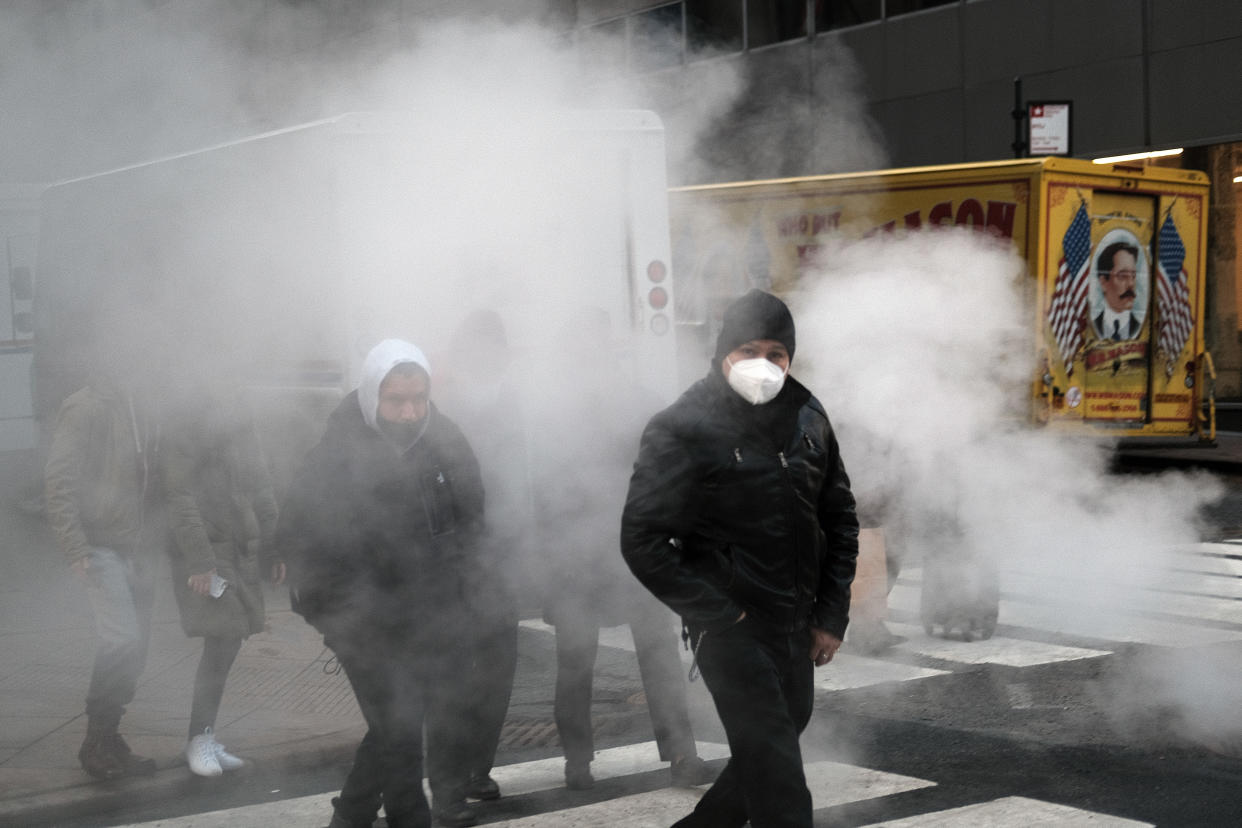America has 'two completely different systems' when supporting unemployed workers
The move by half the states to cancel pandemic jobless programs early reflects a broader, enduring truism of the unemployment system in the U.S.: How much help out-of-work Americans get depends largely on where they live.
Twenty-five Republican-led states plan to opt out of certain unemployment programs — including the extra $300 of weekly benefits — this month even though the federal expiration isn’t until September. Around 4.5 million workers in those states will see their benefits slashed by at least $1,200 a month, while many may no longer qualify for any benefits at all.
“This has created two completely different systems and benefits within the United States, but unfortunately this was also true pre-pandemic,” Jenna Gerry, senior staff attorney at the National Employment Project, told Yahoo Money. “You saw vast disparities between the states and the amount of benefits, the duration, [and] the eligibility requirements before this pandemic even started.”
‘Done everything in its power to limit benefits’
The U.S. doesn’t have a federal unemployment system. Rather, each state has its own system with specific benefits duration, eligibility requirements, and benefits amount. The majority of the states opting out of the federal programs have tried to tighten eligibility requirements or reduce either the duration or amount per week of unemployment benefits — in some cases, long before the pandemic started.
For instance, Alabama, Arkansas, Florida, Georgia, Missouri, and South Carolina decreased the maximum duration of unemployment insurance benefits below 26 weeks — the national standard — between 2011 and 2013. Alabama’s regular unemployment benefits last just 14 weeks and Florida’s jobless benefits could run for only 12 weeks depending on the unemployment rate.
Additionally, since the start of the pandemic, Arizona, Ohio, Missouri, Tennessee, and West Virginia have introduced bills to reduce the duration of unemployment insurance. Tennessee could possibly become the state with the lowest benefits duration nationwide with 12 weeks if recently passed legislation is signed by its governor.
“Unnecessary [government] help is hurting small business,” Rep. Kevin Vaughan, a Tennessee Republican who carried the bill, tweeted in May. “Prosperity = decreased unemployment benefits…Stagnation= increased unemployment benefits.”

Tennessee is attempting to tie the duration of the benefits to the unemployment rate, a move Florida has made. But slashing the duration of the benefits based on the state unemployment rate can hurt workers of color especially, according to Gerry, because their jobless rate often is higher than the overall rate. For instance, in the fourth quarter of 2020 — the latest data available — Black workers had an unemployment rate above 10% in 12 out of the 21 states that provide such breakdowns, according to NELP.
States have also tried to tighten eligibility. For example, after Florida introduced an automated filing system known as CONNECT in 2013, the number of disqualified workers more than doubled the next year, according to NELP.
“Florida is a great example of a state that has done everything in its power to limit benefits,” Gerry said. “They basically created a new online system with the intent to keep people out.”
‘It's a different population’
While “no uniformity” exists among the 25 states, there are distinct trends among two groups, Andrew Stettner, an unemployment insurance expert and senior fellow at the Century Foundation, told Yahoo Money.
The first consists of Southeastern and some Southwestern states like Alabama, Arizona, Florida, and Georgia that have historically minimal unemployment benefits and a difficult application process. These states also have continued to reduce benefits.
The second group is the Northwestern states including Montana, North Dakota, and Wyoming that have historically provided more generous benefits, but recently started to cut back, according to Stettner.
“They have a different person in mind, the person that's working in construction, that can't work in January, February, and March,” he said, describing the rationale behind the better benefits in those states before. But “that kind of sympathy for the unemployed wasn't as strong during COVID… it's a different population.”
The early cut-off in the pandemic-era jobless benefits will disproportionately hurt people of color in many of the 25 states, according to Stettner. For instance, two-thirds of unemployment insurance recipients in Mississippi are Black, while around half in South Carolina and Alabama are Black. The percentage of Black Americans relying on unemployment in those three states is at least three times higher than the national average of 18%.
“There are more Black workers in these states that are getting benefits,” Stettner said. “That's part of this welfare narrative that these are undeserving people getting these benefits, they're being lazy, they're not ready to work.”
‘Never had this happen before’
In addition to the extra $300 in weekly benefits, 20 of the 25 states are also opting out of the Pandemic Unemployment Assistance (PUA) and Pandemic Emergency Unemployment Compensation (PEUC) programs. PUA provides benefits to workers like contractors who don’t otherwise qualify for regular unemployment insurance. PEUC provides additional weeks of benefits.
The workers in the 25 states stand to collectively lose $25.2 billion in benefits, averaging out to potentially thousands of dollars per worker, according to an analysis by the Century Foundation.
“Unemployment benefits may have been politicized in Congress before, but once Congress passed the program, we never had states just not participating,” Stettner said. “This is states backing out of billions of dollars in extended benefits for the unemployed. We've never had this happen before.”
Denitsa is a writer for Yahoo Finance and Cashay, a new personal finance website. Follow her on Twitter @denitsa_tsekova
Read more:
Many taxpayers are still waiting to get last year’s tax refund
Rich Americans avoid taxes even more than anyone realizes, analysis finds
Read more personal finance information, news, and tips on Cashay
Follow Yahoo Finance on Twitter, Facebook, Instagram, Flipboard, SmartNews, LinkedIn, YouTube, and Reddit.

